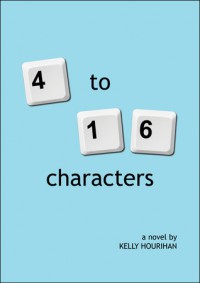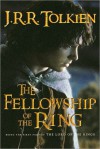4 to 16 Characters
 19/03/'14 edit: I've been thinking about this story a lot lately for some reason, and I realised recently it was because I have a bit of a problem with so many of the negative reviews/DNFs disliking it because it was 'about fanfiction'. I have a huge bone to pick about that, since it is not about fanfiction at all, but a girl trying to come to terms with her mother's death, her loneliness, and her father's issues. Fanfiction is one of the (many) mediums that she uses in order to deal with these issues, and it allows her some escape both through the show and through creativity.
19/03/'14 edit: I've been thinking about this story a lot lately for some reason, and I realised recently it was because I have a bit of a problem with so many of the negative reviews/DNFs disliking it because it was 'about fanfiction'. I have a huge bone to pick about that, since it is not about fanfiction at all, but a girl trying to come to terms with her mother's death, her loneliness, and her father's issues. Fanfiction is one of the (many) mediums that she uses in order to deal with these issues, and it allows her some escape both through the show and through creativity.Even during the fanfic scenes, you can see that she's inadvertently dealing with her own real life issues through them - it's just disguised with the names and problems of the Look to Tomorrow characters. It was a pretty important aspect of the book and the fact that people didn't finish it because of that really saddens me.
~~~~~~
So this is one of those books that appealed to me from the get-go because of the potential of really powerful characterisation and, in this case, a format I'm very familiar with presenting it – online conversations through IM, emails, forum posts, etc. I was excited to read this and wasted no time in setting aside other books to prioritise this one, if only out of sheer curiosity.
Honestly, I'm glad I did. I breezed though this book with the same sense of enjoyment you'd get from hard exercise – it's exhausting, it's painful, but you feel good enough afterwards that it was all worth it in the end. It's a very specific type of 'good' that has nothing to do with watching our protagonist conquer a villain and move on to make the world a better place, though in her own way, Jane does just that.
When the details behind Jane's life started to become more and more clear, I actually started to get very hesitant about continuing at first. She mentions that one of the reasons she's attending Spectrum is because of social anxiety – something that I have lived with constantly for as long as I can remember. My hesitation stemmed from the fact that a lot of people can't seem to understand the difference between social anxiety disorder, and plain old social awkwardness. Many people who've never personally seen S.A.D. with their own eyes, either from their own suffering or the suffering of someone who's close to them, can't accurately put themselves into a S.A.D. sufferer's shoes and have it come off as authentic. Many times it just comes off as grossly inaccurate and even insulting. Throwing about the term 'depressed' over and over again when a character is very clearly not suffering from depression is similar, though of course not the same issue.
I have no idea if the author has S.A.D., or knows someone with it, so I put aside my hesitations and continued on anyway, trying to keep an open mind about it. I was surprised that even though Jane does not view or handle social anxiety like I would, I empathised with her very quickly and managed to feel exactly where she was coming from most of the time, and I couldn't help but somewhat understand her (sometimes violent) outbursts. It didn't take long at all to grow very attached to her and actively want to see her learning to deal with her pain.
Jane herself is often...really unlikeable. Like, not nice at all. It was hard to read certain parts without getting annoyed and wanting to smack her upside the head, which is brilliant. I spent a fair bit of time just putting aside my Kobo and having an internal discussion about her – she's a teenager, so it's understandable she'd be shallow and childish sometimes. She's gone through an unthinkable ordeal with the death of her mother, whom she was very close to, and everyone reacts very differently to grief, something that Jane herself could not acknowledge or accept for a good while. Her father turned back to alcohol to attempt to handle his own pain, and the stresses that put on Jane were obvious and terrible. She threw herself into the internet and the Look to Tomorrow fandom instead of facing, managing and fighting through her own personal pain.
It's all very understandable and easy to relate to. I rely on the internet and World of Warcraft very deeply to help me manage the everyday stresses of dealing with social anxiety, so I can't begin to imagine how hard I would dig into the net if I lost my own mother, who I'm close to as well. I know for certain I'd never want to leave the game, let alone actually get outside or talk to people face to face, which I'm not particularly skilled at.
Something I can't stress enough is how much I adored Jane's 'alter' scenes, where she's writing as Rachel or Ethan or whoever. It's clear to us, the readers, from the get-go that Jane is throwing herself into these personae as a means to escape her life, a way to break it down into more manaegable pieces. Feeling scared and upset? Log in as Ethan. Needing to relax and break away? Rachel. Angry as hell and needing her personal equivalent of beating the ever-loving shit out of a punching bag? Zelda. We're allowed to see, through her eyes, what she herself doesn't – or won't – realise until the end of the book. We get to know her in a very personal way, through her private DiaryNow posts, which tells us just as much about who she is as her alter posts do. It was hard to put down (I ended up going to bed past five in the morning, which surprised me), partly because I wanted to see where Jane ended up, and partly because an online format is so comforting and easy for me to read, I lost all track of time.
Jane ended up relying a lot on Gary, before she was fully aware of it herself. I have to say there is just no way I could dislike him as a character; he's assured of himself, comfortable with who he is and especially his love of Skee-ball. He is obvious with how he feels for Jane, that he values her for who she is and wants to be a rock, a sounding board for her, which he does end up becoming. His IMs with her gave us the most insight to his character; he's quite quick and intelligent, something Jane seems a little surprised by at first, and he's always on the look-out of how to help his friend. He easily accepts her for who she is and doesn't try to change her problems and issues, but to understand them so that he can help her deal with them. He pokes fun at her from time to time, but in the way that friends do, a way that makes huge issues seem not so enormous and much easier to deal with.
Jane eventually crashes down to Earth when it comes to her friendship with him, and it's only after their failed road trip to New York – and their subsequent fight – that she really starts to get how much she cares for him in return, and how much she relies on him, quite like her devotion to Audra. Her feelings for both Gary and Audra kind of sneak up on her, and during their temporary internet silences towards her, she does realise that she actually has friends in her life, and there's little difference between her 'real' friend and her internet friend, and that the prospect of losing them because of her own behaviour terrifies her and fuels her motivation to be someone her mother could be proud of.
I found my eyes welling up at quite a few points in the story, particularly the first time Jane refers to her mother as 'Mommy' instead of just mom. Her self-imposed wall had started to crumble down and she was afraid of the pain that eventually she'd have to finally face. Her father trying so hard to be a good dad, in spite of his alcoholism, and her reactions to that were difficult to be a part of. It made it all the better when, at Gary's Skee-ball tournament, both Jane and her father actually enjoyed themselves – particularly after her father, noticing the bar and wanting to stay on the wagon, told her to warn the bartenders to point him out and not serve any drink to him under any circumstance. His determination to be there for his daughter and be the dad he used to be before the death of his wife was very clear and emotionally stirring.
This story's not going to be for everyone. The format may be awkward for older (and some younger) readers who aren't well acquainted with the internet to get the hang of, and could be frustrating to read. There is little in the way of cohesive plot-line – the story is about Jane, who she is, and how she learns to deal with the death of her mother. A character-driven story is not everyone's cup of tea.
It is, however, mine. It is exactly the flavour I prefer, and while I doubt 4 to 16 Characters (I also love that name with its double meaning) will be overly ground-breaking or end up on a classics list, it's a very solid, if sometimes difficult read that made me think and feel for Jane Shilling. This is a book I'd definitely consider getting a physical copy of to add to my collection – although for posterity's sake, I'll probably get the digital copy instead.







